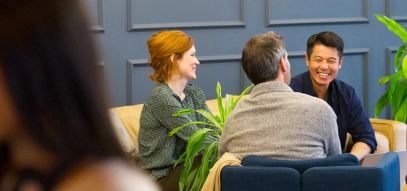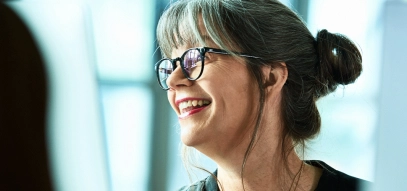Tell us a little bit about you and your career.
I started my career in cybersecurity in Dublin after completing a master's degree in accountancy and finance in France and a postgrad in IT and networking here in Ireland. I worked in Canada for a while as an IT security consultant, then came back to Ireland over 15 years ago and moved to IT and security auditing. During that time, I worked for BWG, eir, Kingspan plc, CGI and AIB.
I joined Mazars in 2012 as Director of IT Security and Audit while doing a postgrad in Intelligent Systems / Artificial Intelligence and Machine Learning (AI/ML) with De Monfort University in the UK. I then completed my PhD at Trinity College Dublin in 2019. My research interests, during my PhD and since, have been focused on AI (generative AI and recommender systems), Web3/blockchain, Fintech, algorithm and sociotechnical auditing and regulatory compliance (DSA/DMA, AI Act, etc.).
I have been Director of Artificial Intelligence in Mazars since 2019.
Is there anyone that inspires you in your career?
Several women inspire me in my career and my research.
One of them is Dr Gladys West, an African American mathematician who mathematically modelled the shape of the Earth. Her work was integrated into the development of satellite geodesy models, which were later incorporated into the Global Positioning System (GPS).
Hedy Lamarr, who was an Austrian American actress and an inventor, has also been a source of inspiration for me. She patented the technology of “frequency hopping” for communication systems which has been used in the military and has led to the invention of Wi-Fi, Bluetooth and GPS.
What does International Women’s Day mean to you? Why do you think it is important to celebrate International Women’s Day?
While I think that it is important to celebrate women on IWD to mark women’s achievements and contributions, raise awareness on challenges women face and reflect on our journeys and successes, to me women’s day is every day so the journey for diversity, inclusivity and equality is ongoing.
The theme for IWD 2023 is ‘Inspire Inclusion’. What does that theme mean to you?
To me, this theme means that we can create a culture of belonging and respect, where everyone feels valued and supported. Everyone can be empowered and reach their full potential.
In the context of AI, where conscious and unconscious biases that already existed have been made more apparent, inclusivity, diversity and representation are not only aspirations but also concrete steps and considerations in the development and evaluation of AI models and systems. So, while this might be a theme for IWD, it is also a focus for every AI system or model that I develop, implement or audit.
How have you built confidence and/or resilience in your career? Do you have any practical tips you can share?
I spent most of my career in technology and financial services which are male-dominated industries, so I have often been the only woman in the room.
To build resilience and confidence, I have always made sure that I had the expertise and the knowledge to back my work. I have always kept learning and upgrading my skills and knowledge, especially in the technology industry, where things change fast and even more so now in AI.
The technological and sociotechnical environments have become more and more complex, and this trend has been accelerating in the last few years affecting everyone, not only those in technology. It has become even more important to remain abreast of new practices and techniques.
Have you faced any barriers in your career due to being a woman? If so, how did you overcome them?
I am not sure if any barriers I have faced in my career have been due to being a woman specifically, and since I am also at the intersectionality of multiple potential prejudices, I would not even try to identify if this has ever happened.
However, during my PhD thesis defence I had to highlight and report the biases of an examiner who systematically requested me to remove citations from feminist female economists to replace them with more prevalent male-dominated currents of thinking, which were not in line with my research. I escalated the matter, which was then resolved. The lesson for me was again to make sure I could back my work and my argument and that I was able to defend it in a logical manner.
Why do you think diversity in the workplace is so important?
Diversity in the workplace is so important because it brings different perspectives, experiences, skills, and ideas. It also fosters creativity and innovation, which are also key in AI.
In AI, diversity is a mandatory element at every stage of the lifecycle process of designing, developing, and deploying AI systems and models and this also includes the teams doing it, the datasets, the approaches, and the users.
It has been evident in some AI systems how the lack of diversity in the teams and organisations developing these products has been the cause for biases, prejudices and issues being performed in their products. These issues have been researched and the ethical AI movement is promoting diversity and inclusivity at every stage of the lifecycle of an AI system.
What is the most important message you want to send out to young women thinking about their careers?
To focus on what they love doing, even if it might be in an industry which is male-dominated, keep learning and find spaces where they are respected and valued.






